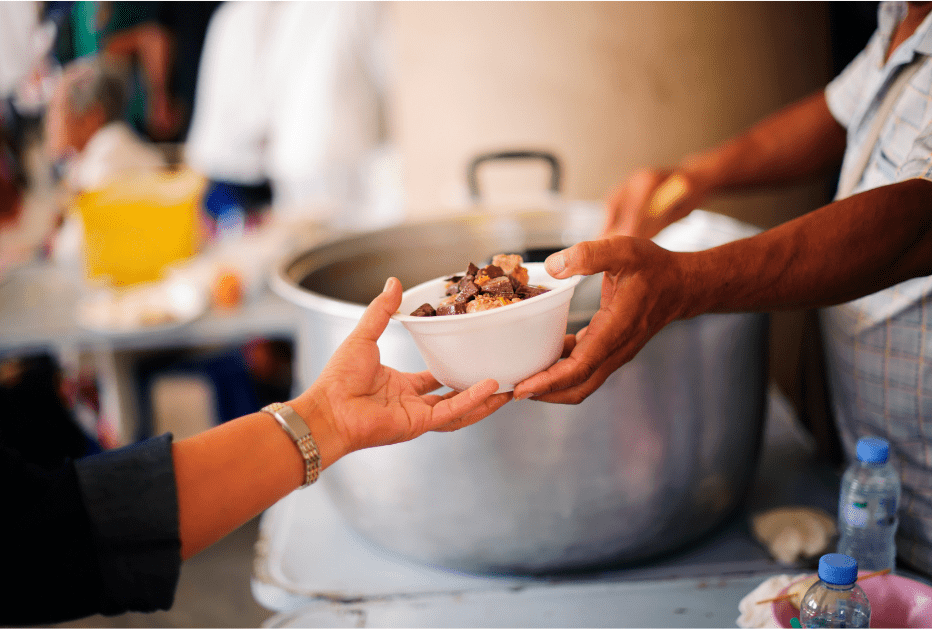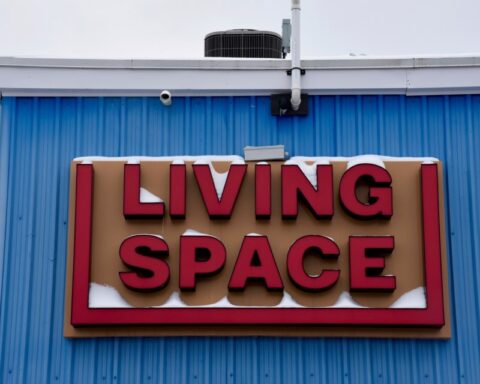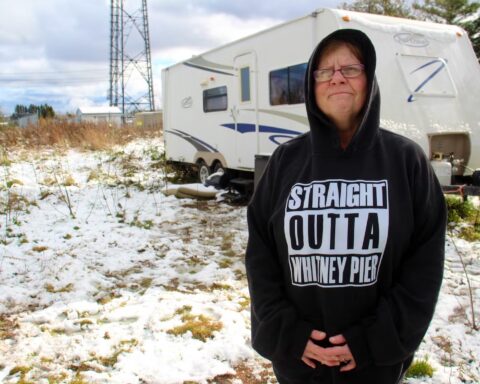This article was produced as part of an Inclusive Journalism Microcredential offered by New Canadian Media and Seneca Polytechnic. Learn more here.
Canada’s escalating housing crisis and surging immigration rates are pushing a growing number of refugee women into an ill-suited and sometimes unsafe shelter system that was primarily designed for the chronically homeless, advocates say.
This often chaotic environment compounds the profound challenges these women face, including fleeing gender-based violence, securing necessary support for legal documentation, and accessing resources to find employment and earn an income.
Mwajuma’s 9-month Experience in the Shelter System
Mwajuma, a 33-year-old refugee from Tanzania with a background in law and a survivor of female genital mutilation (FGM), arrived in Canada with hopes of living authentically as a lesbian, but found unexpected challenges while seeking refuge in a foreign land.
“On the first day I arrived at the shelter, I was so confused. I saw drug addicts and those with mental disabilities outside. I even questioned if I was in the right place,” Mwajuma recalled, prompting her to reach out to Central Intake, the service handling shelter placements in Toronto.
Mwajuma expressed concern about cramped rooms, lack of ventilation, and insufficient personal space, exacerbated by the need to share accommodations with up to four other individuals. She shared her distress over frequently changing roommates.
“A mentally ill person came to my room at midnight, and the air changed. Like I had to sneeze the whole night because they had no air circulation. And that woman had a bad smell. And she didn’t wash. They didn’t tell her to wash herself,” Mwajuma said.
Drawing attention to the disparate treatment between refugees and Canadians, she noted that African refugees are required to undergo strict hygiene protocols upon arrival, including washing all their clothes and showering, while Canadians face no such obligations.
“They tell us we bring diseases from Africa,” said Mwajuma.
She also shared challenges with shelter staff and said, “they frown. Their body language is bad. You are scared to ask something from them, especially the front desk. The others can also be rude but that’s not really important. But the front desk, it’s like you have to beg them to provide you with a service.”
Mwajuma noted that refugees in the shelter often miss out on opportunities intended for them because immigration officials fail to recognize their status. She emphasized the oversight occurs because they reside in a homeless shelter that caters to all categories of homeless individuals, not specifically refugees.
“Our counselor had to contact immigration and request work permits for us as well. They didn’t know we existed,” she said.
She also pointed out cultural differences among residents, such as discomfort with undressing in front of others and using public toilets, especially given the presence of drug-addiction.
“Some residents are comfortable taking all their clothes off in front of another person. The other person thinks, why is she taking her clothes off here?” she said.
During Ramadan, the holy month of fasting for Muslims, Mwajuma lacked provisional support. While she had food for suhoor, the pre-dawn meal before she starts her fast, she had no iftar, the evening meal to break her fast. Instead, she’d have to drink hot water.
Despite her challenges, Mwajuma remains hopeful for a better future and advocates for dedicated shelters for refugees, where their specific needs and cultural differences are taken into account.
“There should be shelters specifically for refugees, where our needs are understood. Everyone should have privacy,” she asserted.
Challenges in Navigating the Housing Market
Prentiss Dantzler, assistant professor of sociology at the University of Toronto, highlighted the challenges faced by those facing the rental market, noting vulnerable factors include being a newcomer, single income household, a minority, and a woman.
Consequently, newcomer women of colour with dependents have some of the toughest hurdles navigating the housing market.
“Renting spaces is really wild. It’s a lot harder for newcomers to get into the rental market,” Dantzler explained, emphasizing the obstacles these women encounter. “You’ll typically need to have all your documents already approved before you even go see a unit.”
He elaborated on the rigorous demands placed on renters including income verification, background and credit checks, as well as working with real estate agents, all of which require considerable time and money which can overwhelm any individual let alone refugee women.
Consequently, many refugee women resort to the shelter system.
Concerns About Funding and Conditions
While the federal government recently rolled out new funding for shelters across the country, Arthur Durieux, director of Montreal’s Le Pont shelter for refugee claimants, is worried about how the funds will be applied.
“If it comes with strict or inhumane conditions, I will not take it,” Durieux said.
Durieux said that funding requirements often mean they would have to push people out of shelters as soon as possible, which is not reflective of the lived experience of people his shelter works with. Le Pont specializes in the needs of vulnerable women, single mothers and refugee families.
“Two weeks to get social welfare, get the papers, cure their trauma and everything they’ve been through, find an apartment, learn French and good luck with everything– and this is not realistic,” said Durieux.
He said some women arrive pregnant, so it’s not practical to have them stay for only a few weeks when they need specialized care. Often he will allow women to determine their own stay.
Strategies for Expansion and Support
Siu Mee Cheng, executive director of Street Haven women’s shelter in Toronto, said refugee women used to make up around 30% of their clientele yearly. But in the last year and a half, they represent around 80% of clients.
“Since June of last year, we’ve turned over 600 women at our door. And that’s actually more women than we ever served in any- like, in a year,” Cheng revealed.
In recent years, the City of Toronto has witnessed a staggering increase in the number of refugee claimants seeking shelter, with figures soaring by 440% from September 2021 to May 2023, surging from 537 to 2,900 individuals.
While specific gender breakdowns are not provided, statistics from Immigration, Refugee and Citizenship Canada (IRCC) reveal that in 2019 and recent years, approximately 47% of overall resettled refugees were female, compared to 53% who were male.
Cheng emphasized that refugee women, while often highly motivated and eager for independence compared to the chronically homeless, find themselves compelled to stay in shelters for extended periods due to the ongoing housing crisis.
She said Street Haven has plans for expansion in response to these persistent trends. Deputations have been sent to the City of Toronto seeking additional funding to enhance their housing services to meet women’s needs, acknowledging the harsh reality of the situation.
“We cannot get rid of shelters, that’s just not rational given what is happening with the influx of refugees and we did also see patterns of migration exponentially increasing and so we cannot not have shelters,” Cheng said.
Cheng said she’s seen many refugee women go on to build successful and fulfilling lives in Canada, provided they receive the necessary support to do so.
“The minute they arrive and land in Toronto and they get off their plane, they should be greeted by a welcome center that immediately connects them to legal support and healthcare support,” she said.
Hue Pham is an independent journalist, currently enrolled in the Journalism Master's program at Harvard University. She graduated from University of Toronto's Bachelor's program in Political Science.
Sheena Shirani, a seasoned broadcast journalist with 15+ years of experience, embarked on a transformative journey from the UK to Iran. Navigating cultural shock and patriarchal challenges, she excelled in journalism despite societal pressures. Forced into exile as a refugee in Turkey, she lived the struggles she once reported on. Passionate about advocating for women, newcomers, and the marginalized, Sheena draws from her personal experiences, poised to use her voice for positive change.






